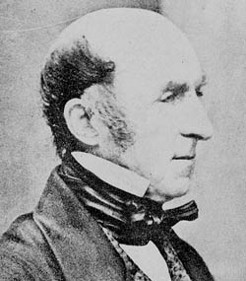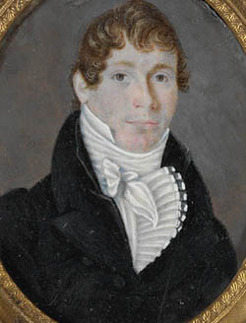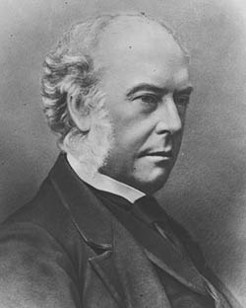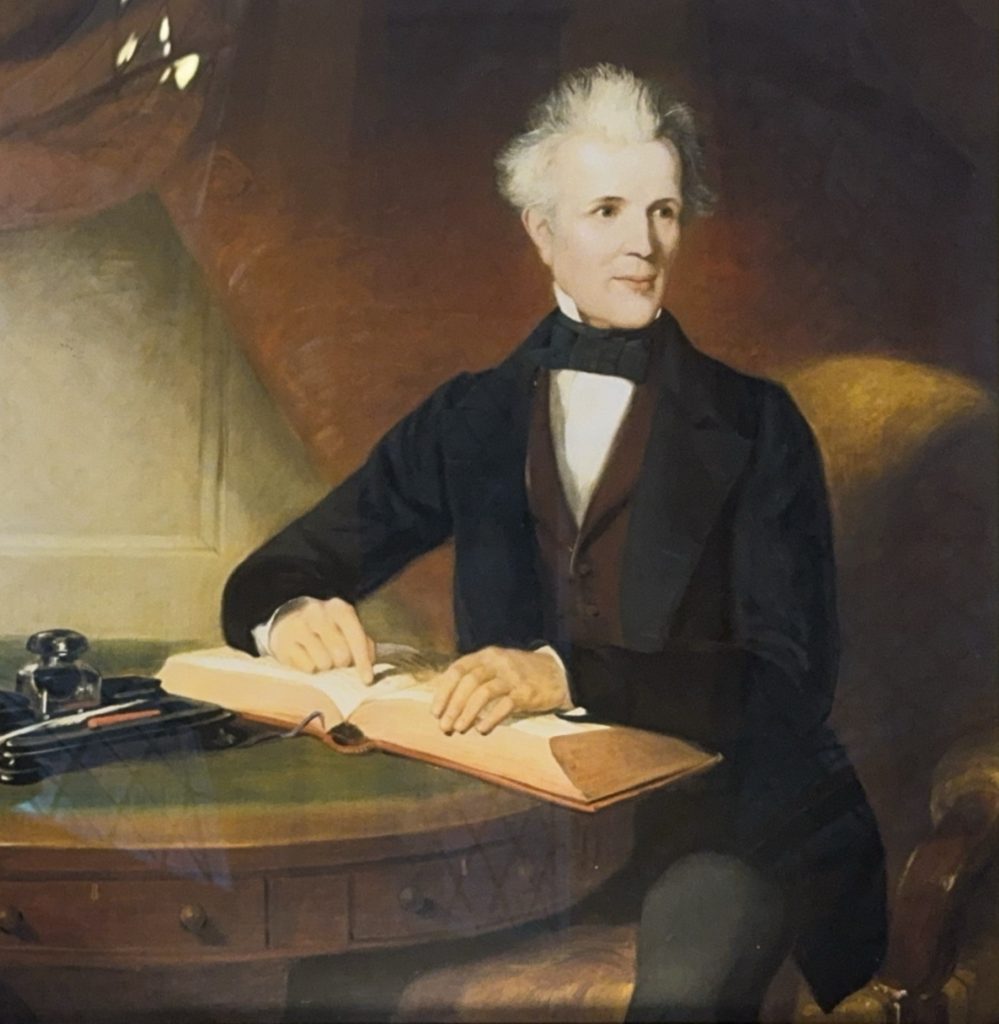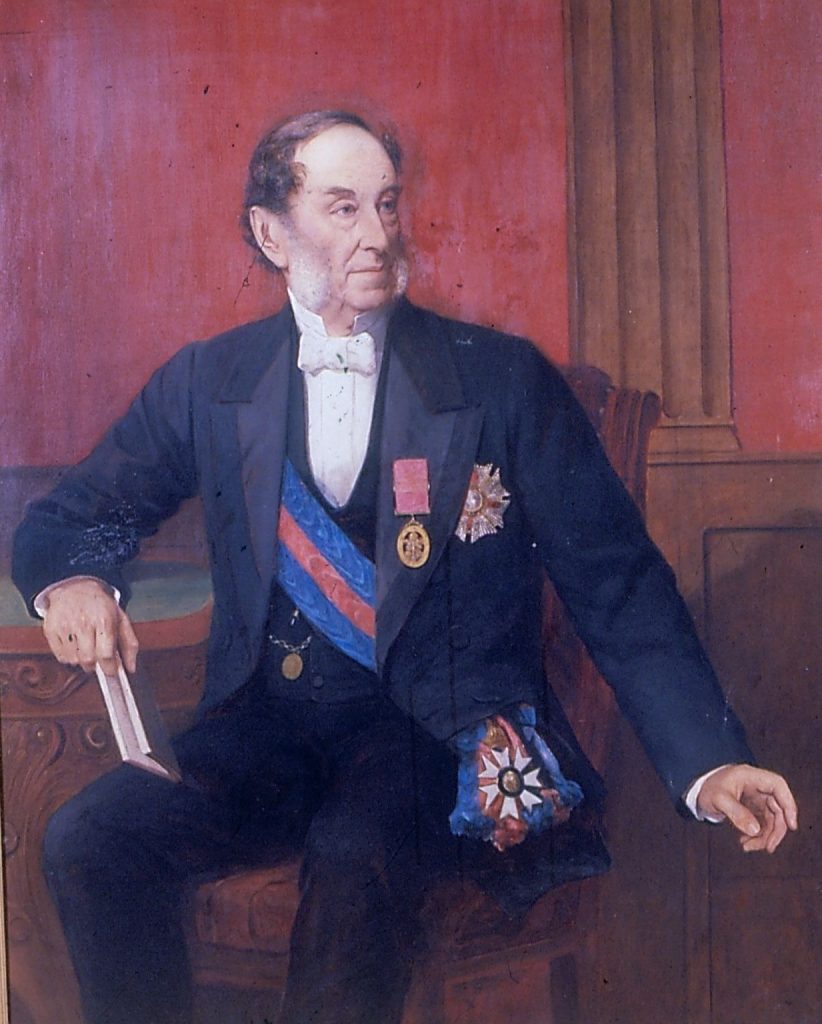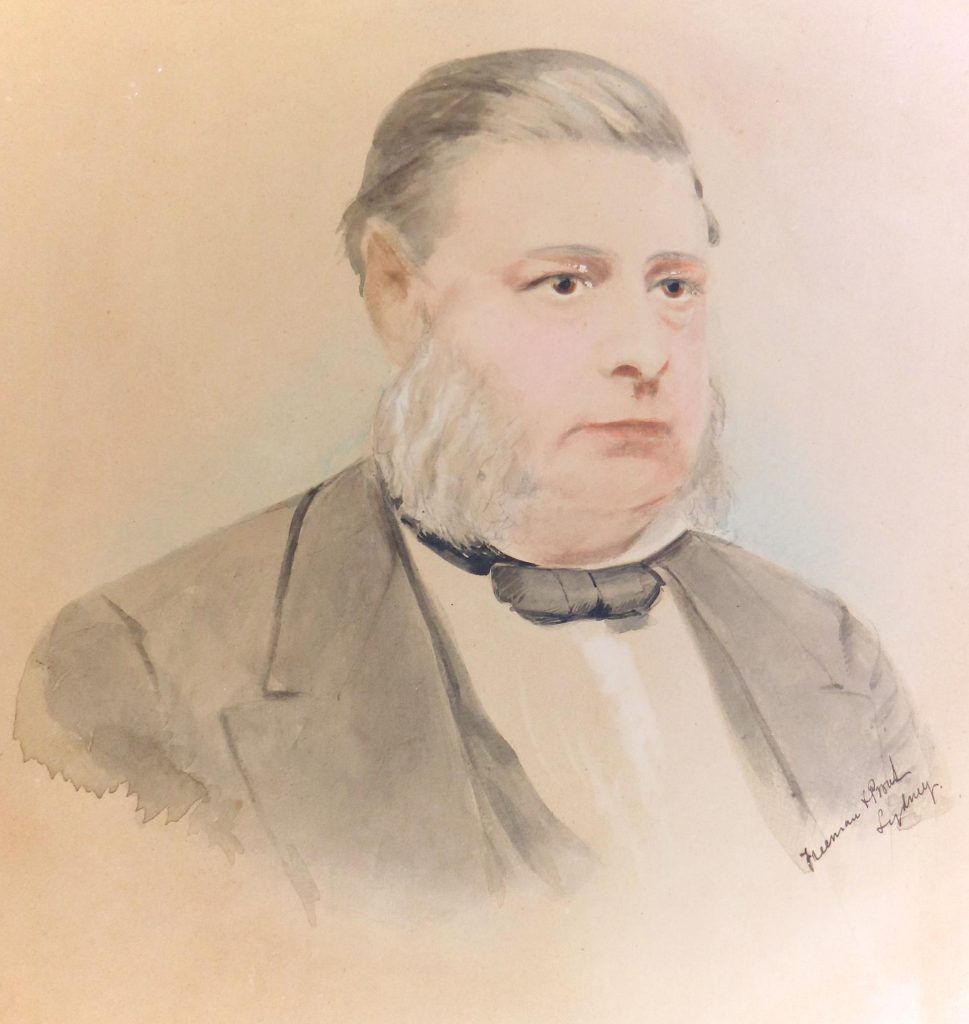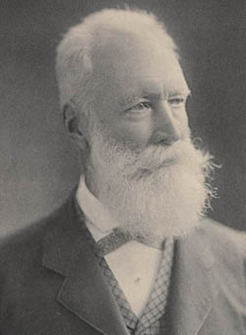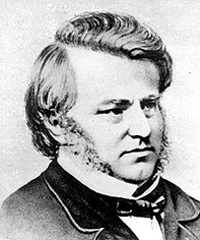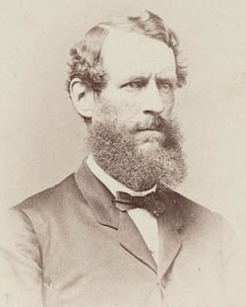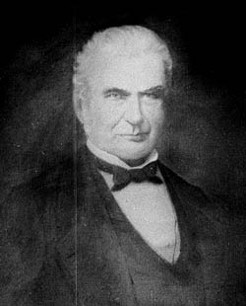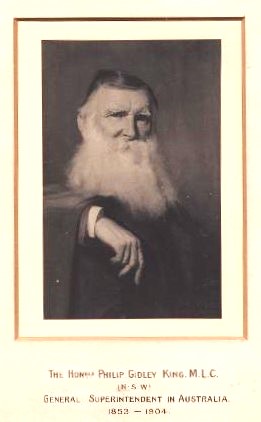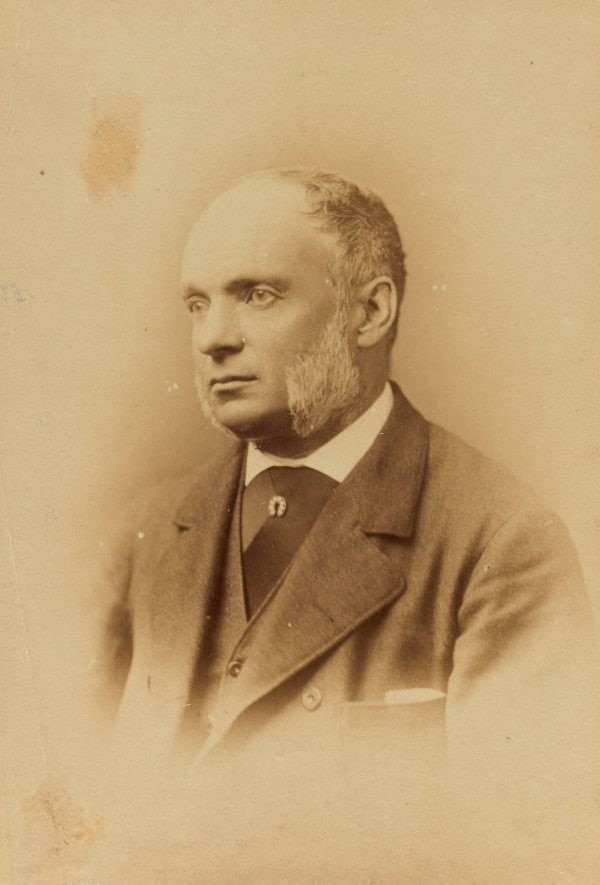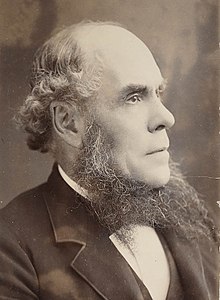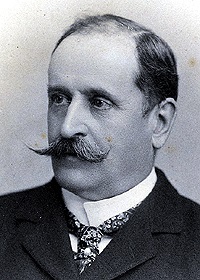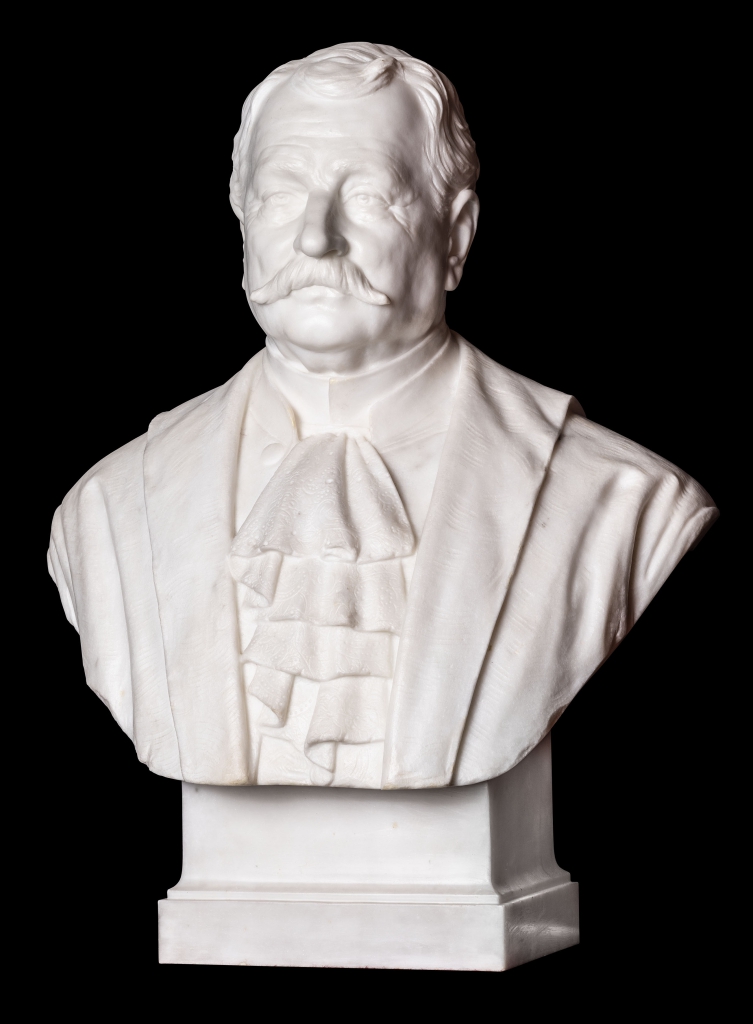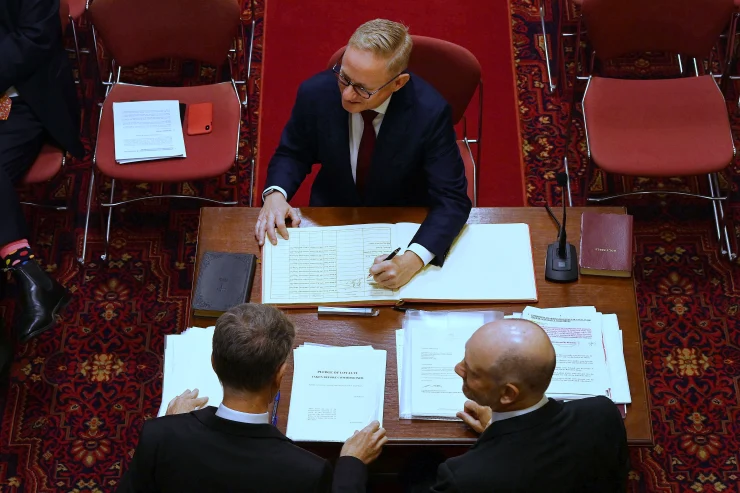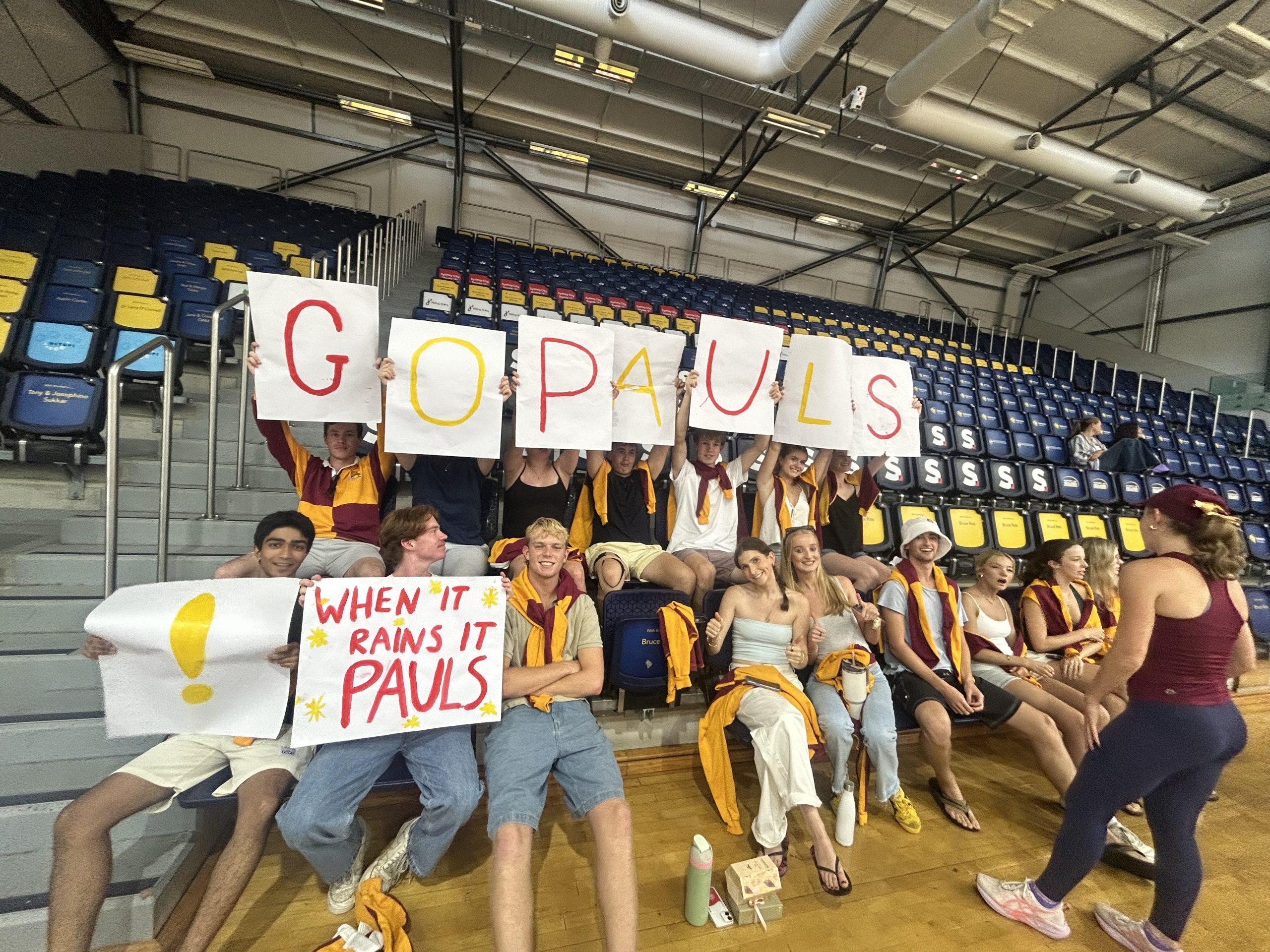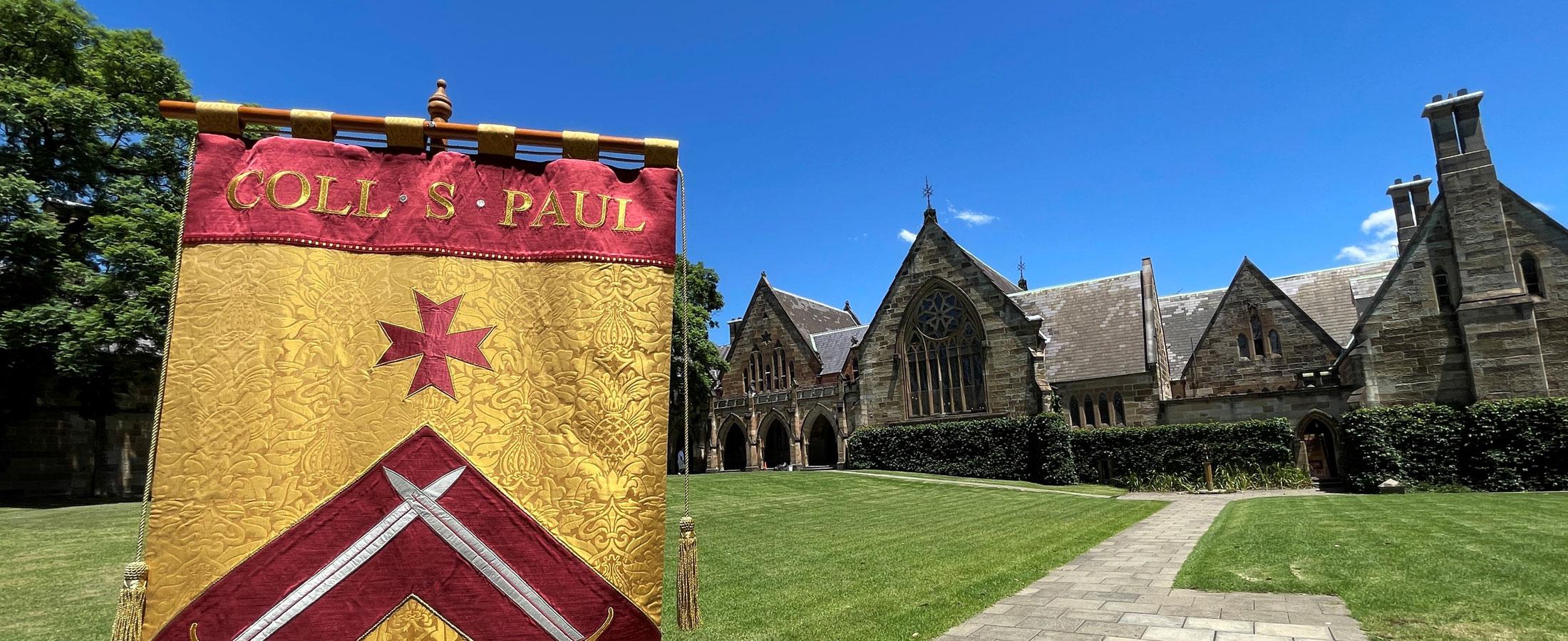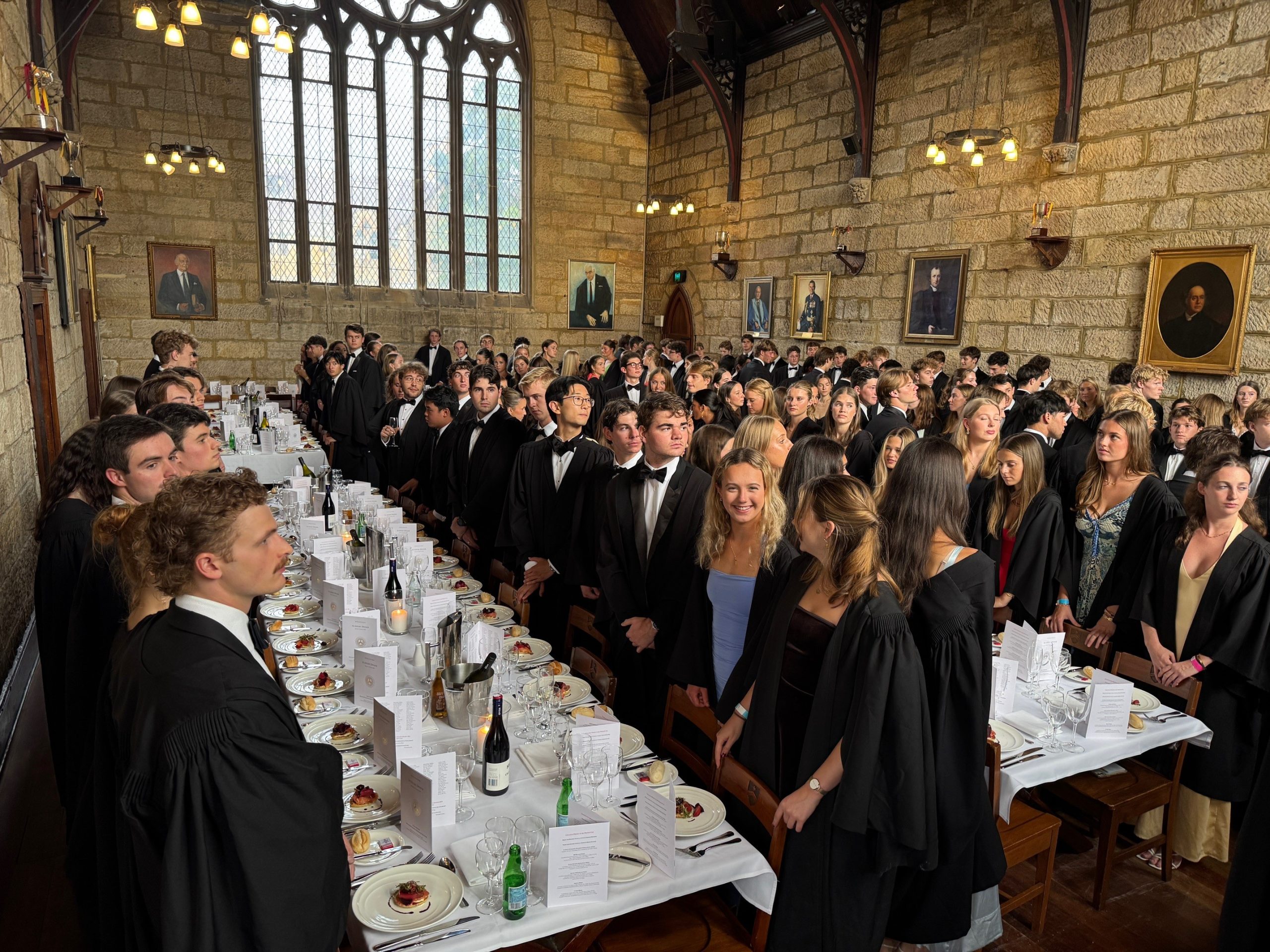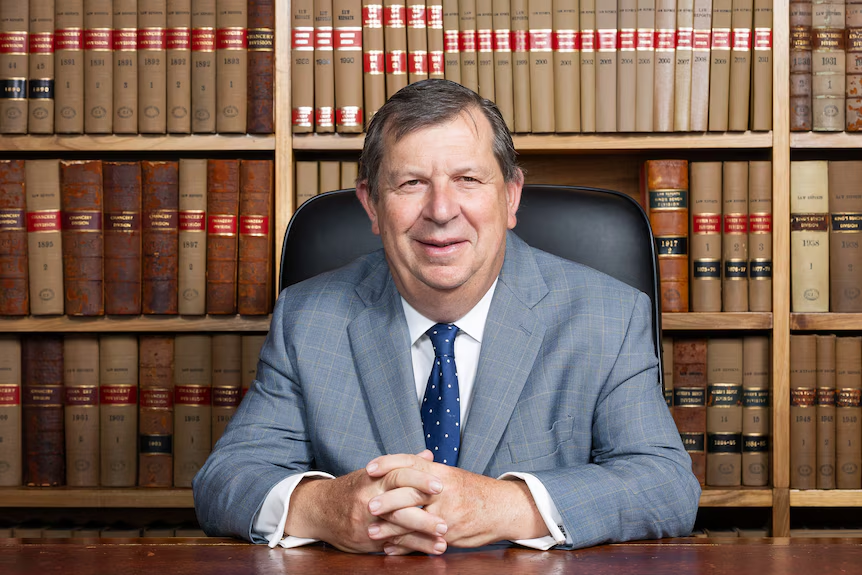The Legislative Council of NSW first met on 25 August 1824 as an advisory council of five members appointed by the Governor. Today it is a representative 42-member House of Review. Throughout its existence people associated with the College have been involved including four Paulines who have been its senior officer, the President, (fellow) Sir Alfred Stephen, (fellow) Sir Francis Suttor, (alumnus) Sir John Peden, and (alumnus) Ben Franklin. Ben is the incumbent President of the Legislative Council.
The NSW Act of 1823 was informed by an extensive inquiry into the NSW colony conducted by John Thomas Bigge. This British Act established the Legislative Council and the Supreme Court in NSW.
The 200 years of parliamentary democracy and the rule of law in NSW is celebrated in 2024. The colony’s first Legislative Council was Francis Forbes as Chief Justice, Frederick Goulburn as Colonial Secretary, William Stewart as Lieutenant Governor, John Oxley as Surveyor-General, and James Bowman as Principal Surgeon. The Council’s first members were appointed to advise the Governor, but ultimately had no real law- or decision-making power.
On 25 August 1824 with Governor Thomas Brisbane presiding, the Legislative Council held its inaugural meeting at what was then Government House (Sydney Museum today), just down the road from where the Council would make its permanent home at the Rum Hospital (now NSW Parliament House in Macquarie St).
The Currency Act 1824 was the first Act passed in NSW on 28 August 1824. The Act allows for transactions originally made in unofficial circulating currencies such as Spanish dollars (one of the imported currencies used in the early colony) and promisory notes to be payable in British pound sterling, which remained in circulation until 1966!
The NSW Constitution Act 1855 (UK) ushered in monumental changes, establishing a system of Responsible Government in NSW creating in 1856 two Houses—a directly elected Legislative Assembly and a Legislative Council whose new primary role was, and sill is, a ‘House of Review’ to provide a check and balance on the Assembly. Changes from appointment to election of MLCs occurred later in the history of the NSW Parliament and on occasions the Council’s ongoing existence was brought into question (old Paulines Sir John Peden and Sir Norman Kater fought hard for the retention of the Council when it was under threat from the Lang government).1
The St Paul’s College Act was passed by the Legislative Council on 1 December 1854 after the £10,000 had been committed or given for the new college to be incorporated.

OLD PAULINES AND THE LEGISLATIVE COUNCIL
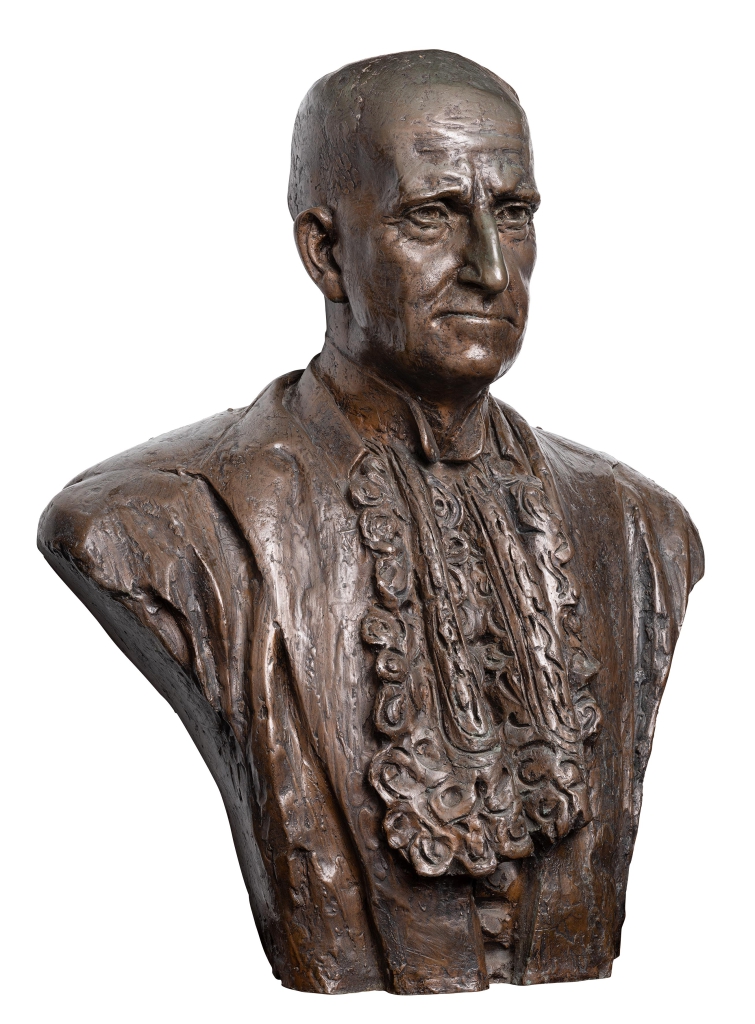
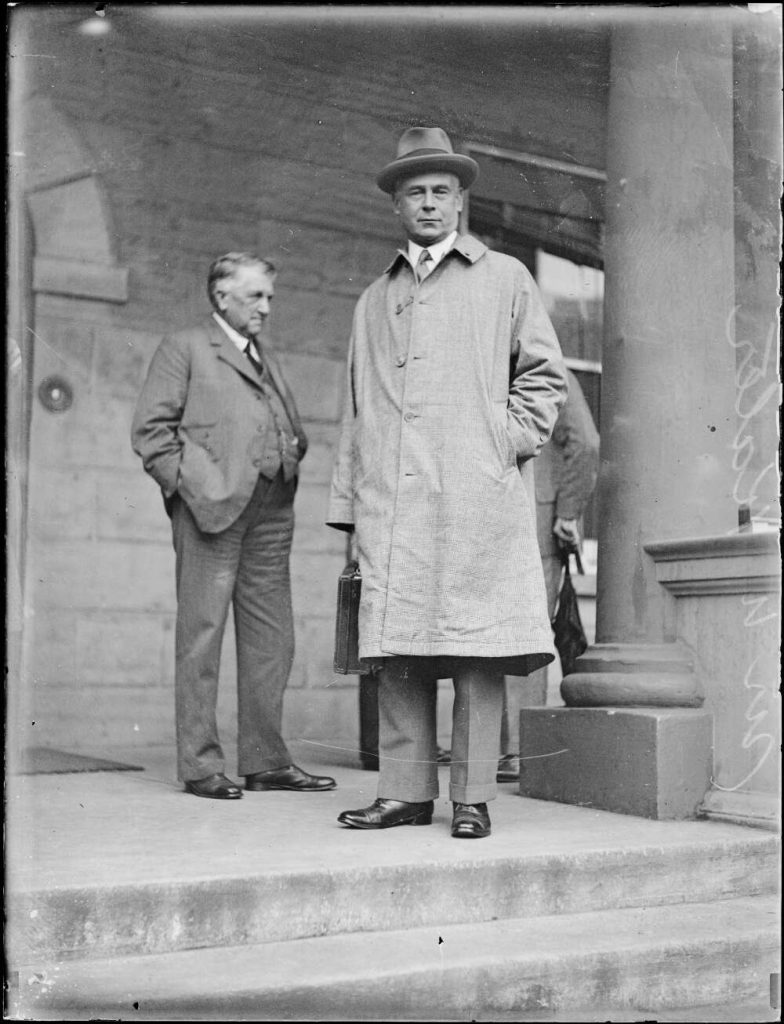
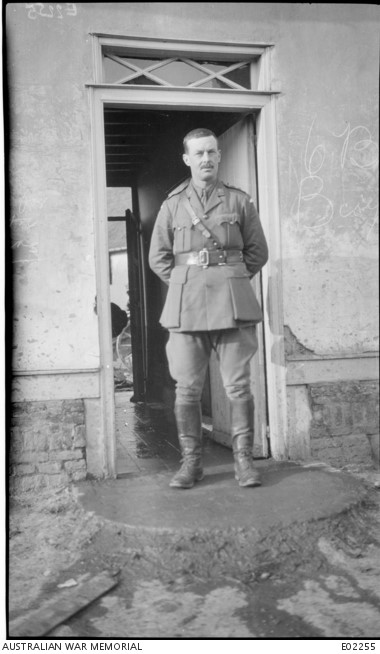
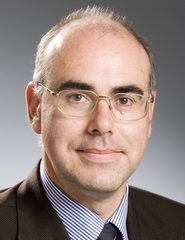
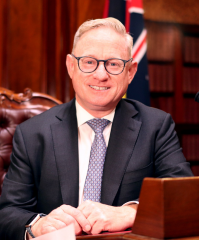
The Hon Sir John Beverley Peden (1871-1946)
- MLC 1917-46
- President of the Legislative Council 1929-46
- in College 1891-99, Vice-Warden 1892-99, Fellow 1901-1928
- BA(Hons I) 1892, LLB(Hons I)(University Medal) 1898; assistant lecturer in Latin 1896; president of the Sydney University Union 1893-94 and again in 1910-11; president of the Undergraduates’ Association, editor of Hermes 1895.
Sir John was a barrister and became Challis professor of Law and Dean of the Faculty in 1910 until retirement in 1941; he was a Fellow of the Senate and active on many of its committees 1910-41; Chairman of the Professorial Board in 1925-33.
1921-31 Sir John served as sole royal commissioner on law reform in New South Wales; in 1913 he served on the Royal Commission to inquire into the constitution of a Greater Sydney; 1927-29 he chaired the Commonwealth Royal Commission on the Constitution.
The Hon Dr Sir Norman William Kater (1874-1965)
- MLC 1923-55 (Progressive Party).
- in College 1893-95
- MB ChM 1898, he won the University Haswell prize 1893, Renwick scholarship 1894, and rowed for the University.
He was resident medical officer at Royal Prince Alfred Hospital in 1898, then worked his way to Britain as ship’s surgeon and worked in specialist hospitals in London. After his return to Australia in 1901 he practiced in Sydney and in 1902 abandoned medicine for agriculture. He was a member of the Boree Shire Council in 1906-11.
War Service:
- Late in 1915 he went to Egypt to assist the Australian Red Cross commissioner;
- He soon departed for France and joined the French Service de Santé Militaire, working near Toulouse. Returning to Australia in 1917 he joined the Australian Army Medical Corps;
- He worked at the Military Hospital, Randwick, and, promoted captain and temporary major, from January 1918 to February 1919 as AAMC adjutant at Victoria Barracks;
- For his active service in France he was appointed chevalier of the Légion d’honneur and awarded the Médaille de la Reconnaissance Française.
He served the Graziers’ Association of NSW as president 1922-24; in 1927-28 he was chairman of the Federal Pastoral Advisory Committee; he was appointed to the State Committee of the Commonwealth Council for Scientific and Industrial Research in 1929; president of the New South Wales Sheepbreeders’ Association 1940-44; from the 1920s Sir Norman had developed important business interests, including chairman of the Co-operative Wool and Produce Co. Ltd; a director of the Colonial Sugar Refining Co. 1924-49; the Graziers’ Co-operative Shearing Co. Ltd (Grazcos) from 1919, Globe Worsted Mills Ltd from 1927, Newcastle-Wallsend Coal Co. from 1933 and a local director of the Liverpool and London and Globe Insurance Co. Ltd.
The Hon LtCol Harold Fletcher (“Bill”) White CMG DSO (1883-1970)
- MLC 1932-34 (Country party)
- in College 1903-04
- Football Blue 1903
Grazier and soldier from Armidale.
Military service:
- 1906 Bill joined the 6th Light Horse, Australian Military Forces;
- April 1914 was promoted captain in the 5th Light Horse;
- March 1916 he was appointed to the Australian Imperial Force as a captain in the 33rd Battalion;
- Promoted major as officer commanding ‘D’ Company;
- The 33rd Battalion fought at Armentières;
- Billwas wounded on 8 February 1917;
- He was again in action at Messines, Belgium, on 6-10 June and was awarded the DSO. The citation spoke of ‘his utter disregard of personal danger, his indomitable will and his tireless energy’ during his ninety-six hours in the front line.
- Having attended the officers’ school at Aldershot in 1918, Bill was promoted lieutenant-colonel and commanded the 36th Battalion until June;
- Then the 35th for the rest of the war. He led the 35th in action south of the Somme in August at Mont St Quentin and in September in operations against the Hindenburg line;
- Between 1917 and 1919 he was three times mentioned in dispatches, received the French Croix de Guerre and was appointed CMG.
After the war he returned to his very successful agricultural pursuits. He was a councillor for the Guyra shire in 1911-29, vice-president of the Northern New State Movement in 1922 and a supporter of the Country Party. Like many ex-officers, he showed alarm at post-war political trends and took part in the Old Guard movement. He had no time for the New Guard. In September 1932 he was nominated to the Legislative Council; he did not like politicians, did not speak in the House and retired in April 1934 when the council was reconstituted. He was a Council-member of the University of New England in 1954.
The Hon Dr Peter Robert Phelps (b 1968)
- MLC 2011-19 (Liberal Party)
- in College 1990-93
- BA(Hons) 1990, PhD (1997). Contributed to Mummers and was a tutor in history.
Peter’s political career included membership of standing and other committees; Chair of the Joint Standing Committee on Electoral Matters 2017-19; Government Whip in the Legislative Council 2015-16. He was a member of the State Executive of the Liberal Party 2003-60; State Council 1996-1998 and 2003-2011.
Peter is an author and contributes to the community as a member of the Board of the State Records Authority of New South Wales since 2013; is an active member of various community associations.
The Hon Benjamin Cameron (“Ben”) Franklin (b. 1972)
- MLC since 2015 (Nationals)
- President of the Legislative Council since 2023
- in College 1990-1996
- BA (1994). College Debating.
Ben’s political career has included Minister for Tourism 2022-23; Minister for Aboriginal Affairs 2021-23; Minister for Regional Youth 2021-23 and Minister for the Arts 2021-23; Parliamentary Secretary for Energy and the Arts in 2021; Parliamentary Secretary for Renewable Energy and Northern NSW 2017-19; member of a number of select and other committees.
Today Ben is leading the celebrations for the 200th anniversary of the NSW Legislative Council.
FELLOWS OF COUNCIL AND THE NSW LEGISLATIVE COUNCIL
[Member of the Legislative Council (MLC) | Member of the Legislative Assembly (MLA)]
Captain (later Rear Admiral) Phillip Parker King FRS RN (1791-1856),
- MLC 1829, 1839, 1850-51
- Fellow 1855-56
Phillip was an internationally acclaimed hydrographer and explorer of Australian and Patagonian coasts 1817-22.
James Macarthur (1798-1867)
- MLC 1838-1843, 1848-1856, 1866-67
- Fellow 1855-59,
Agriculturist, member of the first Senate of the University; Colonial Treasurer 1856.
Sir Charles Cowper KCMG (1807-75)
- MLC 1843-50, 1860
- Fellow 1862-67
- MLA 1856-59, 1861-70;
- Premier of NSW 1856, 1857-59, 1861-63, 1865-67 and 1869-70;
- 1860 appointed Chief Secretary of NSW.
Pastoralist; 1851 president of the Australasian League for the Abolition of Transportation;
James Mitchell (1792-1869)
- MLC 1855-1856
- Fellow 1855-69
Physician and industrialist; trustee of the Australian Museum 1853-69; generous benefactor to St Paul’s College, to which he was elected a senior fellow in 1857; associated with the Australian Subscription Library, now the Public Library of New South Wales, as a committeeman 1832-53 and vice-president and president 1856-69.
Sir Alfred Stephen GCMG CB PC (1802-94)
- MLC 1856-58, 1875-90
- President of the Legislative Council 1856-57
- Fellow and Chairman of Council 1855-70
- Lieutenant Governor of NSW 1872-91
- Administrator of NSW in 1872.
Chief Justice of NSW 1844-73; judge, philanthropist, social reformer; inaugural president of the Legislative Council; Earlier he was was made solicitor-general of Van Diemen’s Land in 1825 and then crown solicitor. He was also President of the Board of Trustees of the Art Gallery of New South Wales 1874-89.
Note: Sir Alfred was a significant player in the founding of the University of Sydney and, despite the opposition of the then Church of England Bishop of NSW, Rt Rev’d William Broughton, Sir Alfred succeeded in having legislation passed for the establishment and endowment of colleges within the University. The act was the Saint Paul’s College Act (1854) (Private Act), now repealed and replaced by the current Act of 2018. We credit Sir Alfred as a ‘founding father’ of St Paul’s being its first Chairman of Council and prior to this the chair of the committee to establish and endow an Anglican residential university college in Sydney.
Robert Ebenezer Johnson (1812-66)
- MLC 1856-61
- Fellow 1855-66
Solicitor; another of our ‘founding fathers’ in 1853 he was joint secretary and treasurer of the St Paul’s College Building Committee with Sir Alfred Stephen; a member of the Benevolent Society Committee.
James Norton (1824-1906),
- MLC 1856-61
- Fellow 1869-1906
Solicitor; alderman of Double Bay from 1873; trustee of the Australian Museum in 1874-1906; trustee of Hyde, Phillip and Cook Parks from 1878 and chairman in 1894-1904; trustee of the Free Public Library from 1878, he was its chairman in 1890-1906; from 1879 a trustee of the Zoological Station, Watson’s Bay; in 1884 he became postmaster-general; a founder of the Linnean Society of New South Wales in 1875.
Charles Kemp (1813-64)
- MLC 1861-64
- Fellow 1855-1864
- MLA 1860
Journalist and businessman; proprietor of The Sydney Morning Herald 1841-53; inaugural Railway Commissioner 1855-56.
Another of our ‘funding fathers’ he helped to found St Paul’s with Sir Alfred Stephen. From 1852, as a trustee of the estate of Thomas Moore who had left a substantial legacy to the Anglican Church for the education of young men for the ministry, he was a party to the foundation in 1855 of Moore Theological College; 1860-64 he was active in raising funds for building St Andrew’s Cathedral, Sydney.
George Henry Cox (1824-1901)
- MLC 1863-1901
- Fellow 1886-1901
- MLA 1856-58
Pastoralist and sheepbreeder; in 1860 was the first mayor of Cudgegong the first rural municipality in NSW.
Charles Campbell (1810-88)
- MLC 1870-88
- Fellow 1864-78
Pastoralist at Duntroon, barrister; builder of the Church of St John the Baptist Canberra; Chancellor of the Diocese of Goulburn.
Philip Gidley King (1817-1904)
- MLC 1880-1904
- Fellow 1870-73
Pastoralist, marine surveyor; in 1876-80 he was first mayor of Tamworth; trustee of the Australian Museum 1881-1904; member of the Aborigines Protection Board 1883-1904.
Henry Cary Dangar (1830-1917)
- MLC 1883-1917
- Fellow 1865-67
Pastoralist; a silent partner in Dangar Brothers, Dangar Gilchrist and Co. and other companies; Commodore of the Royal Sydney Yacht Squadron; foundation member of the National Rifle Association of New South Wales 1860; honorary secretary 1866-68, vice president 1870-77, trustee 1877-1909; Commissioner Melbourne International Exhibition 1880, Melbourne Centennial Exhibition 1888; Director of the Royal Prince Alfred Hospital; Trustee Art Gallery of NSW 1876-87; Council for New South Wales Academy of Art. Founder member, trustee of the Union Club, president 1901-08.
Note: Henry Dangar donated the College cloisters which were erected in 1864.
Sir Alexander Stuart KCMG (1824-86)
- MLC 1885-86
- Fellow 1873-1886
- MLA 1874-79, 1880-85
- Premier of NSW 1883-85
- Colonial Treasurer 1876-77
Businessman; 1852 joined Bank of New South Wales as assistant secretary, assistant inspector 1853; Secretary and inspector 1854; partner in R. Towns & Co. 1855, senior partner on Towns’ death in 1873; director of the Bank of New South Wales 1855-61, 1867-76, 1877-79, president in 1861; sometime Chairman Australian General Assurance Company; director of Waratah Coal Co; took up extensive mining leases in Illawarra district in 1870s; from late 1870s chairman and proprietor Coal Cliff Coal Co. and a director of the Trust and Agency Co. of Australia; 1880s director of the National Mutual Life Association of Australasia Limited; the Bowenfels Coal Mining and Copper Smelting Company and the Sydney Exchange Co. 1882-86; local director of the North British and Mercantile Insurance Company; in 1860s invested extensively and unprofitably in properties in Queensland through R. Towns & Co; had real estate on North Shore, Sydney; owned two steamships built 1879; Commissioner for New South Wales at International Exhibition, Philadelphia, 1876; Executive Commissioner for New South Wales at the Colonial and Indian Exhibition 1886; represented Sydney on Provincial Synod1874-83 and on General Synod from 1876; member of St Andrew’s Cathedral Chapter from 1868, trustee Church lands, and of Moore Theological College; a founder of the Church of England Defence Association.
Septimus Alfred Stephen (1842-1901)
- MLC 1887-1900
- Fellow 1885-1900
- MLA 1882-87
Solicitor and pastoralist; from 1888 invested heavily in cattle stations in Queensland, and lost heavily in drought in 1890s, owned a half share in Elizabeth Farm, owned other property in or near Sydney; life member of Royal Society of New South Wales from 1879; fellow of Royal Colonial Institute from 1888; president of Hospital for Sick Children; director of Sydney Hospital from 1894-95.
Sir Francis Bathurst Suttor (1839-1915)
- MLC 1900-1915,
- President of the Legislative Council 1903-15
- Fellow 1886-87
- MLA 1875-87, 1891-94 and 1898-1900
- Held Justice, Public Instruction and postmaster-General ministries on numerous occasions.
Pastoralist in Bathurst and Wellington; vice-president of the Sheepbreeders Association, president 1903-15; president of the Stockowners’ Association of New South Wales; trustee National Art Gallery of New South Wales 1899-1915, vice president 1915; trustee of the Australia Museum; director of Sydney Hospital 1904-14; president of council Royal Alexandra Hospital for Children; president of Royal Life Saving Society, Sydney Patron of Australia literature.
[further research to follow on Fellows of the College post-1900]
Sources: Australian Dictionary of Biography online: https://adb.anu.edu.au/; Parliament of NSW website: https://www.parliament.nsw.gov.au/Pages/home.aspx; Wikipedia; Alan Atkinson Hearts and Minds: St Paul’s College, Sydney University, 1816-2016, 2017; original documents and images, St Paul’s College Archives.
